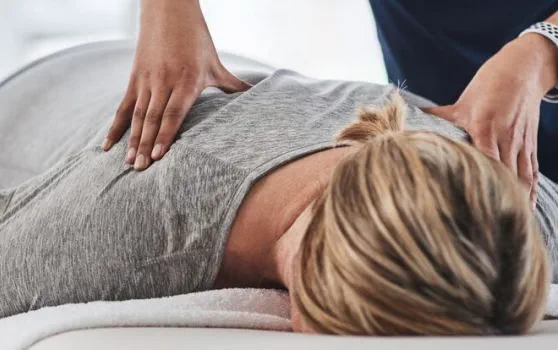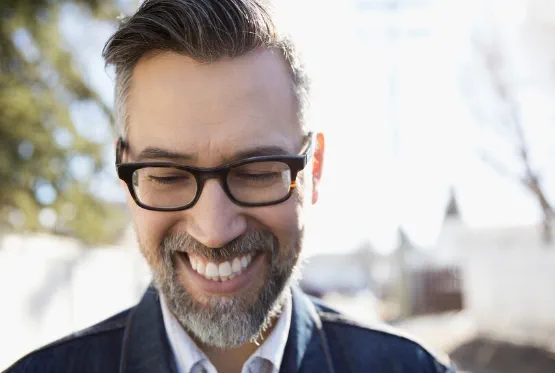What are the main types of complementary therapy?
In the UK, around 9 out of 10 of us have tried a complementary or alternative therapy at some point. Complementary therapies are treatments that aren’t part of mainstream medical care but can be used alongside standard medical treatment. For example, acupuncture and massage therapy are complementary therapies. Read on to find out more about complementary therapies and what they can be used for.

What are complementary therapies?
Complementary therapies offer a different approach to conventional or mainstream medicine.
Conventional medicine is based on research evidence, where possible. Its treatments and medicines have been tested to see whether and how well they work. This is called evidence-based medicine.
Research about complementary therapies is more mixed. While some complementary therapies have been tested and found to work, there’s often no clear evidence to show whether they work or not.
So, is there a difference between complementary therapy and alternative therapy? Complementary therapies are used alongside, or as well as, conventional medical care. But you might hear the term ‘alternative therapies’ used as well. This is when these therapies are used instead of standard medical treatment.
If you’re thinking about using alternative therapies, it’s important to talk to your doctor before you make any decisions about stopping conventional treatment. This is because some alternative treatments may not help you.
What are the different types of complementary therapy?
Some complementary therapies are used more widely than others. Below, we outline of some of the main ones.
Acupuncture
Acupuncture is a traditional Chinese treatment. Your therapist puts small needles into specific points on your body to affect your nerve impulses. Acupuncture is mainly used for managing pain. It can also be used by some physiotherapists alongside other treatments.
There’s evidence to suggest that acupuncture could be a treatment option for the following conditions:
- long-term (chronic) pain
- chronic tension-type headaches
- migraines
Acupuncture may be used for other conditions, although the evidence is less clear. If you’re considering acupuncture, talk to your doctor about whether it’s suitable for you.
Aromatherapy
Aromatherapy is the use of essential oils that come from plants, such as trees, flowers, and herbs. You breathe in the scent from the oils, which can be used as part of a massage, added to skin creams, or put in a bath. You can buy aromatherapy products to use at home, or you can see an aromatherapist for an appointment.
Aromatherapy is generally used for relaxation, but people also use it for:
- easing long-lasting pain
- relieving stress, anxiety, and depression
- insomnia
There’s no clear evidence that aromatherapy can cure or prevent any condition. But the relaxing effect might help some of your symptoms.
Some aromatherapy oils can cause side-effects, such as a rash. And some may interact with some conventional medicines. If you’re pregnant, taking other medicines, or have other health conditions, you should talk to your doctor before starting aromatherapy.
Homeopathy
Homeopathy is a medical system based on the theory that ‘like cures like’. The idea is that a substance that causes symptoms similar to a medical condition can help treat that condition when it’s given in tiny amounts. The ingredients for homeopathic medicines come from plants, minerals, and animals. You can take them as tablets to swallow or put under your tongue, but they can also be available as creams, ointments, and gels.
However, there’s no clear evidence that homeopathy works for treating any condition or symptom, and some studies suggest it’s not effective. Speak to your doctor if you’re thinking about trying homeopathy, to check on the medicine you plan to take. They can tell you if it’s likely to be safe for you.
Massage therapy
Massage therapy is where a therapist manipulates your body’s soft tissues, usually with their hands and fingers. They might focus on one part of your body or treat your whole body. Massage is mainly used for relaxation and general wellbeing. Some people use massage therapy to manage aches and pains, especially in their bones and muscles.
There are several different types of massage. These include:
- Swedish massage – this is the most common type, in which the whole body is massaged
- deep tissue massage – often used for long-term problems with deep muscles
- sports massage – for before and after sports
- aromatherapy massage – using essential oils
- Shiatsu – using acupressure and stretching
It’s widely accepted that massage can help with a wide variety of musculoskeletal (bone and muscle) problems. Massage can be used alongside exercise and psychological support to treat low back pain. There’s some evidence that massage might also be helpful for fibromyalgia. Although massage can’t treat cancer or HIV/AIDS, there’s some evidence to suggest it can improve the quality of life for people with these conditions.
Osteopathy and chiropractic
Osteopathy and chiropractic are sometimes called manipulation therapies. Osteopaths and chiropractors use their hands to work on your joints, muscles, and tissues. These techniques are often used to treat lower back, neck, and shoulder pain. But they may also be used to manage sports injuries and headaches. They can also be used to treat low back pain, together with exercise and psychological support.
Osteopathy and chiropractic are generally thought to be safe when carried out by a trained professional. One of the techniques used by chiropractors and osteopaths is spinal manipulation. It’s possible to have serious side-effects from this, but it’s very rare. Spinal manipulation isn’t suitable for everyone. So, tell your doctor if you’re thinking about this type of therapy. And tell your therapist if you’re taking any medicines or have other health problems.
In the UK, osteopaths and chiropractors must be registered. The regulatory body for osteopathy is the General Osteopathic Council. For chiropractors, it’s the General Chiropractic Council.
Reflexology
Reflexology is a type of massage focused on the palms of your hands or your feet. The idea behind it is that there are zones running through your body that are linked to parts of your feet or hands. By pressing and massaging parts of your hands or feet, a therapist is said to improve energy flow to other parts of your body.
There’s very little evidence to show that reflexology can treat any condition or relieve symptoms. But you may find it relaxing and soothing.
Herbal medicines
Herbal medicines are made from plants and have been used for many centuries. The idea of herbal medicines is to use plant ingredients in their original form to treat or prevent a health condition. They may contain a complex mixture of chemicals present in the plant, rather than just one active ingredient.
Possible risks with herbal medicines include the following.
- Many have not been tested to see if they work.
- Some herbal medicines can interfere with other medicines you take.
- Different batches may vary in how much active ingredient they contain. Some herbal medicines – for example, unlicensed medicines bought from non-registered providers online - could be toxic.
- It’s not always known what the right dose should be.
To help reduce some risks, herbal medicines sold in the UK should be registered with The Medicines and Healthcare products Regulatory Agency (MHRA). They’re registered as ‘traditional herbal medicines’ and you may see the traditional herbal registration (THR) mark on the packaging. Always read the patient information leaflet that comes with your herbal medicine carefully.
Herbal medicines are not right for everyone. Remember that, just because something is marketed as ‘natural’ or ‘herbal’ doesn’t mean it’s always safe to use. Herbal medicines contain ingredients that can have serious effects on your body, just as conventional medicines do.
If you’re considering taking a herbal medicine, your doctor or pharmacist can advise whether this would be safe for you. And if you’re taking herbal medicines, you should let any doctor who treats you know.
Are you interested in learning more about your health? Discover more about our range of health assessments.
-
Sources Sources
- Complementary and alternative medicine. Patient. patient.info/doctor, last updated 1 March 2022
- Overview of integrative, complementary, and alternative medicine. MSD Manual. msdmanuals.com, revised December 2023
- Evidence-based medicine. Oxford Handbook of Clinical Pharmacy (online). Oxford Academic. academic.oup.com, published April 2017
- Chronic pain. NICE Clinical Knowledge Summaries. cks.nice.org.uk, last revised April 2021
- Headache – tension-type. NICE Clinical Knowledge Summaries. cks.nice.org.uk, last revised July 2022
- Migraine. Scenario: migraine in adults. NICE Clinical Knowledge Summaries. cks.nice.org.uk, last revised September 2022
- Medicines and prescribing. Oxford Handbook of General Practice (5 edition). Oxford Academic. academic.oup.com, published June 2020
- Homeopathy: what you need to know. NIH National Center for Complementary and Integrative Health. nccih.nih.gov, last updated April 2021
- Massage therapy: what you need to know. NIH National Center for Complementary and Integrative Health. nccih.nih.gov, last updated May 2019
- Massage and cancer. Cancer Research UK. cancerresearchuk.org, last reviewed September 2022
- Massage therapy. MSD Manual. msdmanuals.com, revised December 2023
- Low back pain and sciatica in over 16s: assessment and management. National Institute for Health and Care Excellence (NICE). nice.org.uk, last updated December 2020
- Osteopathy and cancer. Cancer Research UK. cancerresearchuk.org, last reviewed July 2022
- Chiropractic. Cancer Research UK. cancerresearchuk.org, last reviewed August 2022
- Reflexology. MSD Manual. msdmanuals.com, revised December 2023
- Medicines and prescribing: Non-drug interventions and complementary medicine. Oxford Handbook of General Practice (online). Oxford Academic. academic.oup.com, published June 2020
- Herbal medicine and cancer. Cancer Research UK. cancerresearchuk.org, last reviewed May 2022
- Herbal remedies. Mind. mind.org.uk, published January 2022
- What is acupuncture. Acupuncture Association of Chartered Physiotherapists. aacp.org.uk, accessed January 2024
About our health information
At Bupa we produce a wealth of free health information for you and your family. This is because we believe that trustworthy information is essential in helping you make better decisions about your health and wellbeing.
Our information has been awarded the PIF TICK for trustworthy health information. It also follows the principles of the The Information Standard.

More general health advice articles
Did you find our advice helpful?
We’d love to hear what you think. Our short survey takes just a few minutes to complete and helps us to keep improving our healthy lifestyle articles.
Legal disclaimer
This information was published by Bupa's Health Content Team and is based on reputable sources of medical evidence. It has been reviewed by appropriate medical or clinical professionals and deemed accurate on the date of review. Photos are only for illustrative purposes and do not reflect every presentation of a condition.
Any information about a treatment or procedure is generic, and does not necessarily describe that treatment or procedure as delivered by Bupa or its associated providers.
The information contained on this page and in any third party websites referred to on this page is not intended nor implied to be a substitute for professional medical advice nor is it intended to be for medical diagnosis or treatment. Third party websites are not owned or controlled by Bupa and any individual may be able to access and post messages on them. Bupa is not responsible for the content or availability of these third party websites. We do not accept advertising on this page.






